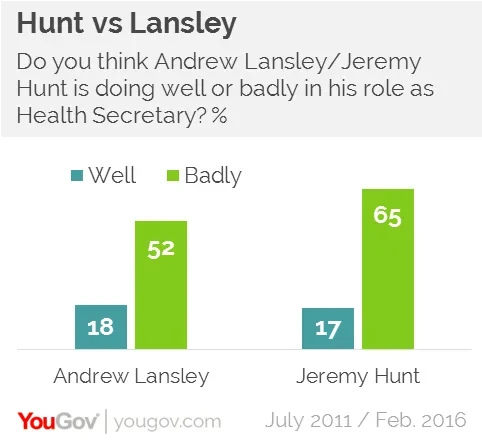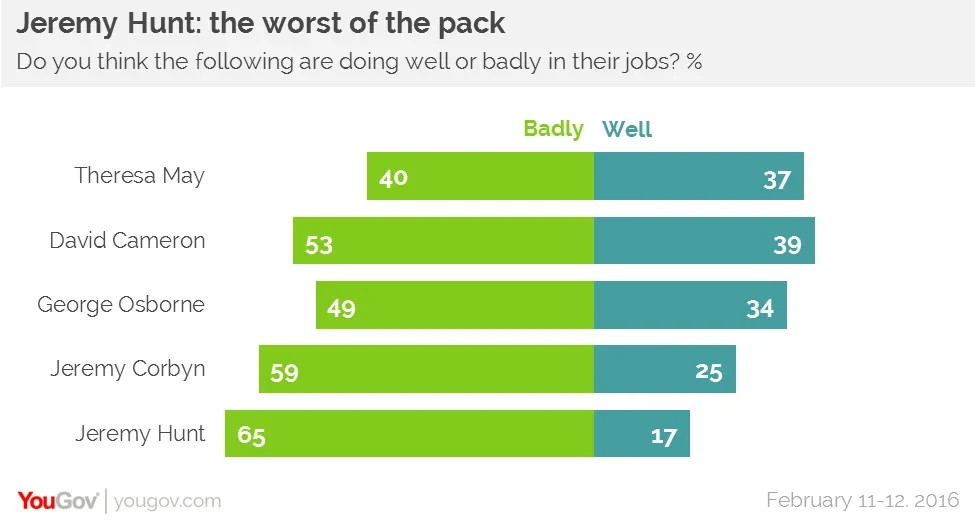Jeremy Hunt's approval rating is now lower than Andrew Lansley's – and most British people say the government is wrong to impose a new contract
After the most serious period of industrial action in the healthcare profession since the 1970s Jeremy Hunt finally drew the curtain on negotiations with the British Medical Association this week, imposing a disputed contract on junior doctors against their will and raising the prospect of further strikes, refusals and resignations. The Health Secretary offered a 'take-it-or-leave-it' offer on Wednesday – a deal the government insists was fair and included a rise in basic pay of 13.5% – however the junior doctors' union refused to accept cuts to premium rates of pay on Saturdays and the removal of guaranteed pay increases over time.

When Hunt's predecessor Andrew Lansley published plans to replace Primary Care Trusts with consortia managed by GPs he received a vote of no confidence by the Royal College or Nursing in April 2011, and off the back of suggested cuts to public sector pensions the BMA called for him to resign.
Mr Lansley lost his job in 2012, but his replacement now has a lower approval rating (17% say he is doing well, 65% badly) than Lansley did in July 2011 (18% well, 52% badly). Jeremy Hunt's approval has suffered a 17 point fall since we last asked the question (21% well, 52% badly in August 2013).
The Health Secretary has the lowest approval rating (-48) of his cabinet colleagues, and is six points behind Jeremy Corbyn – whose rating has improved slightly from -39 on January 15 to -34.

The majority (54%) of British people say the government is wrong to impose the new contract without the agreement of doctors. 22% say it is right to do so, increasing to 41% among conservatives – however 36% of conservatives say this was the wrong thing to do.
The most popular suggestion for how the government should have handled the breakdown in talks was to continue negotiations (44%), while 19% say there was no real chance of the two sides coming to a deal. Conservatives are divided between the two options (37% and 35% respectively).
Now the contract has been imposed, only 25% say doctors should relent and accept the contract. 52% say they should either refuse to sign it (29%), continue to protest and take strike action (18%) or resign from the NHS (5%).
However there is broad support for expanding the level of service offered by the NHS at weekends (54%) rather than saying the level of service currently offered is fine as it is (23%), and people are divided 35%-35% over whether changes to doctors' contracts would or would not be necessary to deliver such an expansion.
PA image








